Month of Horrors / Hell is Adaptations: The Silence of the Lambs
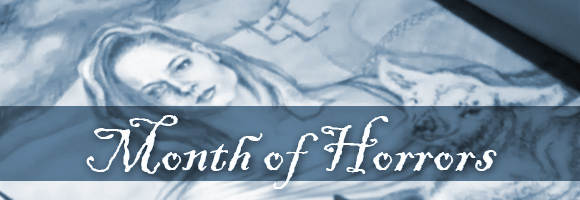
“Memory, Agent Starling, is what I have instead of a view.”
It’s easy to understand how Manhunter and its source material Red Dragon lost much of its staying power after the release of The Silence of the Lambs in 1991. This is the film that made many people ridiculously famous: Anthony Hopkins, Jodie Foster, Ted Levine, Jonathan Demme, and Thomas Harris, among others. It won five Academy Awards in one swoop, beating out The Prince of Tides (for Best Picture), JFK (Best Director), Cape Fear (Best Actor), Thelma & Louise (Best Actress), and Fried Green Tomatoes (Best Adapted Screenplay).
Unlike Harris’ novel, Silence the film is a standalone piece that makes no reference to the earlier story, ignoring the novel’s many reference’s to Red Dragon’s protagonist Will Graham, now living as a disfigured drunk somewhere in Florida, and inferring that Graham’s boss Jack Crawford was the one who caught the notorious cannibal psychiatrist Dr. Hannibal Lecter. For the purposes of adaptation to a new medium, it’s understandable that many changes would need to be made, but it’s actually fascinating how well the finished product works both as a standalone piece of art and as an adaptation.
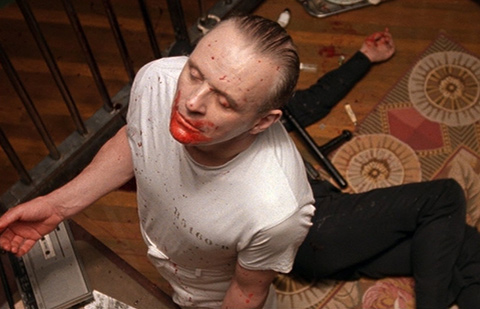
“I ate your script with a Montrachet and a side of red caviar.”
I don’t say that only because I fear to disagree with five Oscars. Demme’s film is a tightly-wound thriller that is always moving forward, discarding many of the novel’s side plots for a linear story of depravity and the bureau that fights against it. Certainly this means that many of Harris’ intended subtleties are lost, as is much of his social commentary, but I’m not all that sad to lose some of these things. Where Harris will spend thirty pages showing off all of his meticulous research into the strange world of moth species, the film skips quickly to the conclusion with an instant identification by the consulting scientists. The scene where Foster’s character Clarice Starling enters a storage unit to follow a lead from Dr. Lecter has a long and complicated back story in the novel, all mercifully cut with scarcely any explanation in the film.
On the other hand, Harris is a wonderfully baroque sort of novelist, full of ideas, research, subtext, symbolism, and fascination with the bizarre characters he has imagined into being. There’s something unfortunate about losing that artistic touch, regardless of the quality of the finished adaptation. Demme has his own subtext to add to the story, with occasional implications about the corruption of America via symbolically connecting the story’s serial killers with the American political establishment. This subtext does not assert itself too strongly into the “text” of the film, though I expect a film essay examining this aspect of Silence would be very interesting to watch.
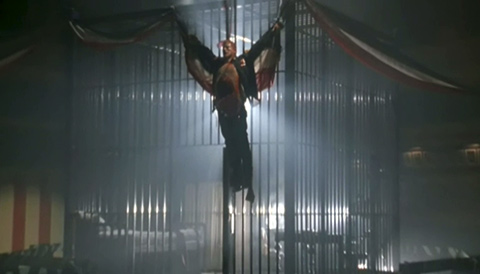
The subtext is that America rocks!
The work Anthony Hopkins does here as Hannibal Lecter scarcely needs any commentary from me. I will note, however, that however much Hopkins gets accused of playing Lecter cartoonishly in this film, the Lecter of the novels is superhumanly cartoonish in comparison. Harris’ ur-Lecter has six fingers on one hand, maroon irises, and a memory palace to compete with the real cathedrals and museums of the Vatican. Hopkins’ slurping at the memory of liver and fava beans can barely compete in weirdness with the superhuman psychiatrist of the novel.
Jodie Foster is perfect as FBI trainee Clarice Starling. She’s more likable than her prose counterpart, in my opinion. The Clarice of the novel is so grossly obsessed with her present and future status in the FBI that you’re often left hoping she gets eaten by somebody. Harris encourages this narcissistic streak in his protagonist by ratcheting up the misogyny of the FBI establishment so much that the reader could be excused for being angrier at Starling’s small chances at promotion than at the serial murders. Demme wisely makes the drive to solve the Buffalo Bill case the overwhelming inspiration for all Starling’s actions, and leaves the institutional sexism as background noise.
The other actors do fine work. Scott Glenn (of The Hunt for Red October fame) is a good Jack Crawford, however little he has to do in this story. Anthony Heald is creepy enough as Lecter’s keeper, Dr. Frederick Chilton. Those who know Ted Levine from his role as Captain Stottlemeyer in the TV show Monk may be shocked to see him as the human skin suit-sewing killer Buffalo Bill, but it’s difficult to imagine many other actors doing a better job.
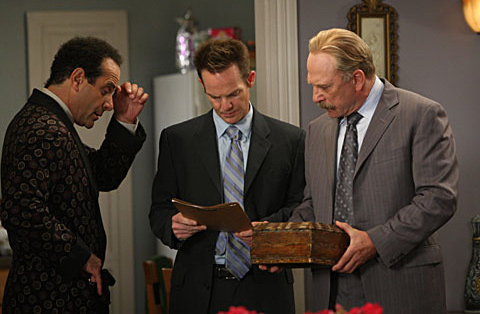
“Let’s see, ‘It puts the lotion on its skin, or else it something something…'”
In spite of the good balance the film found with its fast pace, one is occasionally left wishing for a more placid approach. Harris is overwrought at times, but he is methodical in a way that demands patience and personal investment in the story. Lecter’s dialogues with Starling in the film are a little too hurried, however well the actors manage them. It’s great to hear the wind whistling through the old courthouse as Clarice tells Dr. Lecter about the screaming of the lambs, but the extreme closeups and fast editing ensure that this will not be a meditative moment. The novelized Lecter is cartoonish, but more internally fascinating than anything Anthony Hopkins can do with just sixteen minutes of screen time.
There’s an obvious problem with confusion about the true antagonist of this story. Is it Buffalo Bill, the serial killer Starling and Crawford spend all their energy chasing, or is it Hannibal Lecter, the murderous dandy psychiatrist with impeccable taste? Starling is the clear hero, but there is no one clear villain. This is a problem even more present in the novel than in the film, and it’s no wonder Michael Mann cut Lecter almost entirely out of Manhunter. The character is such a show-stealer in The Silence of the Lambs that one can’t help but feel sorry for Ted Levine. Buffalo Bill is a more disturbing villain than Lecter in some ways, but Lecter is actually a likeable villain. One can believe he managed to charm politicians and socialites into keeping him company before his capture. He’s too witty and (when it suits him) polite to truly hate. Bill is so creepy you wouldn’t feel comfortable being in the same cafe as him even if he kept to himself. Harris established a fairly comfortable formula with Red Dragon and Silence by making Lecter the evil killer who found it entertaining to help the FBI catch other evil killers. The fans clamoring for a more straightforward story with Lecter as the main villain would have their wish fulfilled soon enough, and many of them would quickly regret it.
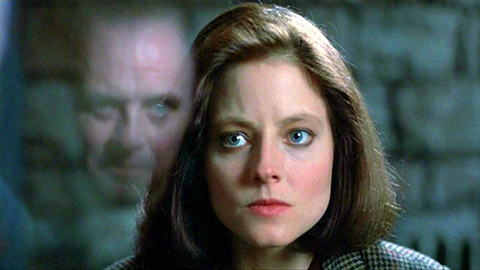
Guess who’s not coming back for the sequel?
Coming Soon: Hannibal!
 Rent The Silence of the Lambs from Amazon Instant Video
Rent The Silence of the Lambs from Amazon Instant Video



















 Full Details
Full Details


No comments yet.
Sorry, the comment form is closed at this time.